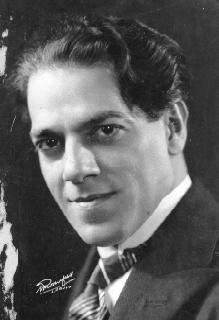
Heitor Villa-Lobos was a Brazilian composer, conductor, cellist, and classical guitarist described as "the single most significant creative figure in 20th-century Brazilian art music". Villa-Lobos has become the best-known South American composer of all time. A prolific composer, he wrote numerous orchestral, chamber, instrumental and vocal works, totaling over 2,000 works by his death in 1959. His music was influenced by both Brazilian folk music and stylistic elements from the European classical tradition, as exemplified by his Bachianas Brasileiras and his Chôros. His Etudes for classical guitar (1929) were dedicated to Andrés Segovia, while his 5 Preludes (1940) were dedicated to his spouse Arminda Neves d'Almeida, a.k.a. "Mindinha". Both are important works in the classical guitar repertory.

Alberto Nepomuceno was a Brazilian composer and conductor.

String Quartet No. 1 is the first of seventeen works in the genre by the Brazilian composer Heitor Villa-Lobos, originally written in Nova Friburgo in 1915 and extensively revised in 1946. A performance lasts approximately eighteen minutes.

String Quartet No. 2 is the one of a series of seventeen works in the genre by the Brazilian composer Heitor Villa-Lobos, and was written in 1915. A performance lasts approximately twenty minutes.

String Quartet No. 3 is the third of seventeen works in the medium by the Brazilian composer Heitor Villa-Lobos, and was written in 1916. A performance lasts approximately twenty-three minutes.

String Quartet No. 4 is the fourth of seventeen works in the genre by the Brazilian composer Heitor Villa-Lobos, written in 1917 and revised in 1949. A performance lasts approximately 23 minutes.

String Quartet No. 5 is the fifth of seventeen works in the genre by the Brazilian composer Heitor Villa-Lobos, written in 1931. A performance lasts approximately 17 minutes.

String Quartet No. 6 ("Brazilian") is one of seventeen works in the genre by the Brazilian composer Heitor Villa-Lobos, and was written in 1938, in between his early and late periods. Villa-Lobos considered naming it "Quartet Popular No. 2" as opposed to "Brazilian," and while the work is indeed one of his more nationalist pieces, it also bears direct connections to the Viennese tradition of string quartet composition. A performance lasts approximately 24 minutes.

String Quartet No. 7 is the seventh of seventeen works in the genre by the Brazilian composer Heitor Villa-Lobos, written in 1942. With a performance lasting approximately 37 minutes, it is the longest of Villa-Lobos's string quartets

String Quartet No. 8 is one of seventeen works in the genre by the Brazilian composer Heitor Villa-Lobos, written in 1944. A performance lasts approximately twenty-five minutes.

String Quartet No. 9 is part of a series of seventeen works in the medium by the Brazilian composer Heitor Villa-Lobos, and was written in 1945. A performance lasts approximately 25 minutes.

String Quartet No. 10 is one of a series of seventeen works in the genre by the Brazilian composer Heitor Villa-Lobos, and was written in 1946. A performance lasts approximately 23 minutes.

String Quartet No. 11 is a 1947 string quartet, part of a 17-work series in the medium by Brazilian composer Heitor Villa-Lobos. A performance lasts approximately 27 minutes.

String Quartet No. 12 is the part of a series of seventeen works in the genre by the Brazilian composer Heitor Villa-Lobos, and was written in 1950. A performance lasts approximately twenty-two minutes.

String Quartet No. 13 is one of a series of seventeen works in the medium by the Brazilian composer Heitor Villa-Lobos, and was written in 1951. A performance of it lasts approximately twenty minutes.

String Quartet No. 14 is the one of a series of seventeen works in the medium by the Brazilian composer Heitor Villa-Lobos, and was written in 1953. A performance lasts approximately seventeen minutes.

String Quartet No. 15 is one of a series of seventeen works in the medium by the Brazilian composer Heitor Villa-Lobos, and was written in 1954. A performance lasts approximately nineteen minutes.

String Quartet No. 16 is the penultimate of seventeen quartets by the Brazilian composer Heitor Villa-Lobos, and was written in 1955. A performance lasts approximately twenty minutes.

String Quartet No. 17 is the last of seventeen quartets by the Brazilian composer Heitor Villa-Lobos, and was written in 1957. A performance lasts approximately twenty minutes.

Mariuccia Iacovino was a Brazilian violinist and instructor. A child prodigy on the violin, she studied in Brazil and Spain and performed internationally. At the end of World War II, she moved to Paris and performed as a soloist with the Cologne Orchestra. In 1964, she and the Quarteto da Guanabara received the first prize from the international Villa-Lobos String Quartet Competition and in 1966, she was awarded the Carlos Gomes Medal in Rio de Janeiro.




